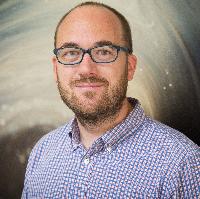research overview
- Keith Ulmer pursues research in experimental elementary particle physics, which explores the fundamental constituents of matter and their interactions. He works on the CMS experiment at the Large Hadron Collider (LHC) at the CERN laboratory in Geneva, Switzerland. The CMS detector records the results of very high energy proton-proton collisions provided by the LHC, which are analyzed to study fundamental interactions. His current effort is focused on searches for evidence of physics beyond the standard model of particle physics motivated by a potential new symmetry of nature known as supersymmetry, which may help explain such fundamental questions as the nature of dark matter and the origin of electroweak symmetry breaking. He is a former leader of the CMS supersymmetry group, and currently co-leads the US-CMS upgrade project for the data acquisition (Trigger) system.

